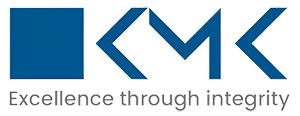A Beginner’s Guide to Understanding US GAAP: Why It’s Essential for Financial Reporting

As a newcomer to accounting, you’ve probably come across the term US GAAP more times than you can count. But what does it mean, and why should you care about it? Whether you’re a business owner, investor, student, or finance professional, understanding US GAAP (Generally Accepted Accounting Principles) is fundamental to making sound financial decisions. In this article, we’ll break down the basics of US GAAP, explore its importance, and examine how it shapes financial reporting in the United States.
What is US GAAP?
US GAAP refers to a comprehensive set of standardized accounting principles, rules, and guidelines that businesses in the United States must follow when preparing their financial statements. The primary goal of US GAAP is to ensure that financial reporting is accurate, consistent, and transparent, providing a clear view of a company’s financial health.
Developed and maintained by the Financial Accounting Standards Board (FASB), US GAAP is enforced by regulatory bodies like the Securities and Exchange Commission (SEC) for publicly traded companies, ensuring that financial reporting adheres to strict standards of accuracy and transparency.
Why is US GAAP Important?
Adhering to US GAAP provides several advantages, both for businesses and for the stakeholders who rely on financial information:
- Ensures Financial Accuracy: US GAAP promotes precise and reliable financial reporting, reducing the risk of errors and inaccuracies in financial statements.
- Enhances Comparability: By following uniform accounting standards, businesses make it easier for investors to compare financial statements across companies, industries, and sectors.
- Promotes Transparency and Trust: By minimizing the potential for financial manipulation, US GAAP helps companies present a clear and honest picture of their financial position, which fosters trust among investors, creditors, and the public.
- Legal Compliance: The SEC mandates that publicly traded companies follow US GAAP, helping prevent financial fraud, misrepresentation, and inaccuracies in reporting.
- Supports Better Decision-Making: When businesses adhere to US GAAP-compliant financial statements, they—and their stakeholders—are provided with more reliable data to guide decisions on investments, budgeting, and strategic planning.
Key Principles of US GAAP
At the core of US GAAP are several fundamental principles that guide how financial statements should be prepared. These principles distinguish US GAAP from other accounting frameworks, such as Ind AS in India. Here are some of the key principles.
- Principle of Regularity: Companies must adhere strictly to US GAAP standards without exceptions.
- Principle of Consistency: To ensure comparability, businesses must use consistent accounting policies from one period to the next. Any changes must be clearly disclosed in the notes in the financial statements.
- Principle of Sincerity: Financial statements should represent an honest and accurate depiction of the company’s financial condition.
- Principle of Prudence: Financial statements should be based on verifiable, factual data rather than speculative assumptions.
- Principle of Going Concern: Financial statements should assume that the business will continue its operations indefinitely unless there is evidence to the contrary.
- Principle of Full Disclosure: To ensure transparency, all relevant financial information must be included in the financial statements or their accompanying notes.
US GAAP vs. IFRS: Key Differences
While US GAAP is the standard in the United States, many countries follow International Financial Reporting Standards (IFRS). Here’s a quick look at some of the key differences between the two frameworks:
| Feature | US GAAP | IFRS |
| Rules vs. Principles | Rule-based with strict guidelines | Principle-based with greater flexibility |
| Inventory Valuation | Allows the use of LIFO (Last In, First Out) | Does not allow LIFO |
| Asset Valuation | Does not permit revaluation of fixed assets | Allows revaluation of fixed assets |
| Expense Recognition | Set rules for expense recognition | More flexibility in recognizing expenses |
Who Needs to Follow US GAAP?
- Public Companies: All publicly traded companies in the United States are legally required to follow US GAAP, as enforced by the SEC.
- Private Companies: While private companies are not legally mandated to follow US GAAP, it’s often recommended as a best practice to maintain credibility with investors, lenders, and potential business partners.
- Non-Profit Organizations: Non-profits and charitable organizations must also adhere to US GAAP or similar accounting standards to ensure financial transparency and meet regulatory requirements.
How to Stay Compliant with US GAAP
For businesses, accountants, and finance professionals, staying in compliance with US GAAP is crucial for maintaining the integrity of financial reporting. Here are some steps to ensure your company remains compliant:
- Keep Up to Date with FASB Guidelines: Regularly check for updates to US GAAP and any changes in accounting standards.
- Use US GAAP-Compliant Accounting Software: Utilize accounting tools like QuickBooks or NetSuite that are designed to help ensure your financial statements comply with US GAAP.
- Hire a CPA or Accounting Firm: If you’re unsure about compliance, hiring a certified public accountant (CPA) or a CPA firm can help ensure your financial reporting meets all US GAAP standards.
- Conduct Regular Audits: Have an external auditor review your financial statements periodically to ensure compliance with US GAAP.
- Train Your Accounting Team: Ensure that your accounting team is well-versed in US GAAP principles and up to date on any new developments.
Conclusion
US GAAP is the foundation for financial reporting in the United States, ensuring businesses maintain accurate, transparent, and consistent financial statements. By adhering to US GAAP principles, companies comply with legal regulations and build trust with investors and stakeholders, providing a solid basis for making sound financial decisions.
If you need assistance with US GAAP compliance for your business, don’t hesitate to reach out. At KMK, we can help you ensure that your financial statements are fully aligned with US GAAP, enabling you to maintain market transparency and credibility.
 Harshvardhan Kothari is a qualified Chartered Accountant from the Institute of Chartered Accountants of India (ICAI), with over 5 years post-qualification experience. He has a comprehensive background in U.S. accounting practices and financial management.
Harshvardhan Kothari is a qualified Chartered Accountant from the Institute of Chartered Accountants of India (ICAI), with over 5 years post-qualification experience. He has a comprehensive background in U.S. accounting practices and financial management.
Known for his meticulous attention to detail and results-driven approach, Harshvardhan has a proven track record overseeing financial operations while ensuring regulatory compliance and fiscal transparency. In his free time, Harshvardhan enjoys playing cricket and table tennis.
Let’s Take Our Conversation Ahead
KMK is a top outsourced accounting and tax service provider. We offer end-to-end accounting and tax services for small to mid-sized businesses, with a team of 1000+ professionals, including certified public, chartered, and staff accountants.
USA:
651 N Broad St Suite 205, Middletown, DE 19709, USA
Phone: 310-362-2511
India:
300, Sankalp Square-3B
Sindhu Bhavan Marg,
Ahmedabad, Gujarat 380058
For Career: 91-98240-42996
Developed by Bluele | Copyright © 2026 | KMK Ventures Private Limited. | All Rights Reserved


